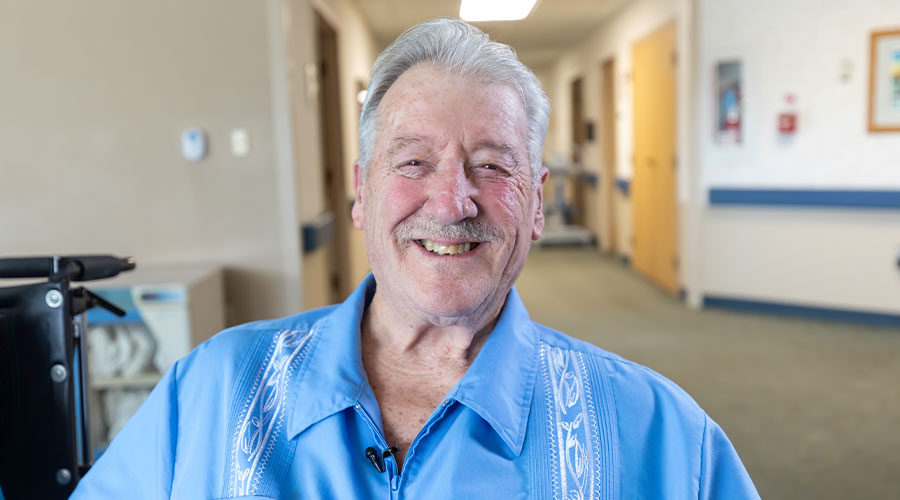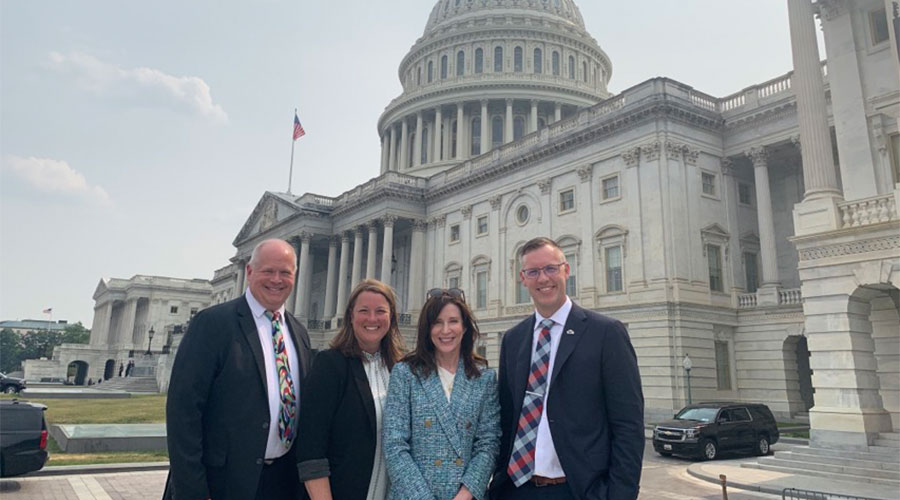Leaders from the Evangelical Lutheran Good Samaritan Society say a federal staffing requirement could have damaging effects across the country.
They spent part of the week voicing concerns with lawmakers at the 2024 American Health Care Association/National Center for Assisted Living (AHCA/NCAL) Congressional Briefing on Capitol Hill.
The event saw record attendance with more than 700 providers across the country.
“It’s a really important time in our industry's history,” Good Samaritan Society president and CEO Nate Schema tells Sanford Health News. “One could argue that there is no greater existential threat than the one being posed by the current administration than its final staffing rule.”
The invite-only event provides AHCA/NCAL members the opportunity to connect with elected officials, gain insight on the latest legislative and policy developments and collaborate with other industry leaders.
This year, the focus was on the state of long-term care, advocating for legislative policies that would protect access to care for seniors and strengthen the long-term care workforce.
“We had a visit to every single office on the Hill which shows just how important this time is,” Schema adds. “We are going to ensure that every single [lawmaker] hears from providers on what this rule means to us.”
Impacts of the federal rule
The Protecting America’s Seniors’ Access to Care Act (S.3410/H.R.7513) would block a federal staffing mandate for nursing homes recently finalized by the administration.
New data shows that only 6% of nursing homes currently meet all four requirements.
Across the Good Samaritan Society’s footprint, only 5% of its locations meet the requirement to have a registered nurse on-site 24 hours a day.
The non-profit organization would need to hire an additional 207 registered nurses and nearly 400 nurse aides to comply with the federal rule.
“It’s an impossible task because the people simply aren't there,” Schema says. “The pipeline is simply not there as it stands today, yet we're committed to providing quality of care and we believe we do that day in and day out.”
Chief operating officer Aimee Middleton said this is a good opportunity to come together with leaders and caregivers from across the United States.
“You can feel the energy as we’re here lifting up our voices together and spending some time with legislators to make sure that they really understand what it looks like,” Middleton tells Sanford Health News.
“Seventy percent of our locations today are in rural areas, and so it's important that we're able to lift up that message … and make sure that they recognize the differences and additional challenges that we face in the rural areas.”
Sharing their story
One of those caregivers is Tiffany Zahnow, who oversees medication and scheduling coordination in Albion, Nebraska.
“I’m here to let them know how important rural, long-term care facilities are to the communities,” Zahnow says. “Keeping them open is vital.”
Another caregiver is Laura Salonek, an administrator in Howard Lake, Minnesota. Salonek is thankful for the opportunity to share her story and Howard Lake’s story with lawmakers.
“Our location in Howard Lake is a five-star location,” Salonek says. “We have five-star staffing, five-star quality, five-star surveys, low turnover and a great work environment. But the reality is, there are not enough qualified caregivers and nurses.”
Full-time nursing positions in Howard Lake are taking upwards of 240 days to fill, she says.
“My worry is, if this mandate is in place and we must have certain staff in place, we would be forced to stop taking residents or discharge residents,” Salonek adds. “Where will they go? Where will they go to find quality care like the care that we provide in Howard Lake?”
“We will continue to do all we can to work alongside our policymakers on meaningful, common-sense solutions to address our workforce crisis and protect access to care for our nation’s seniors,” Schema says.



